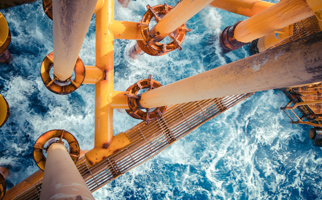
Companies have a legal duty to decommission platforms and pipelines in a cost-efficient manner once production operations have permanently stopped at their oil and gas fields.
Decommissioning work has been taking place in the North Sea since the early 1990s and in the past decade has become a mainstream activity which generates billions of pounds of spending annually.
While decommissioning is regulated by central government, the North Sea Transition Authority (NSTA) engages with companies in the years prior to production ceasing – providing guidance and setting clear expectations – to ensure that decommissioning plans are developed in a way that minimises costs and supports the energy transition.
Lowering decommissioning costs reduces the burden of tax reliefs on the Treasury. Also, operators can invest the money they save in new production and emissions reduction projects.
We report on decommissioning performance and work with other industry groups to capture and share learnings – and promote collaboration.
In addition, we work with licence holders to identify and prioritise opportunities to repurpose offshore oil and gas infrastructure, particularly pipelines, for energy transition projects, such as carbon capture and storage and hydrogen.
The NSTA is also the regulator for well decommissioning, which is forecast to make up almost half of the total cost of decommissioning.



